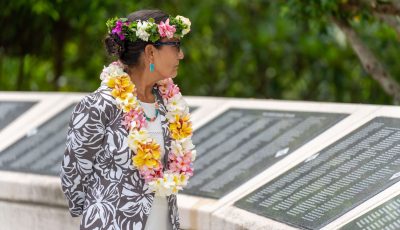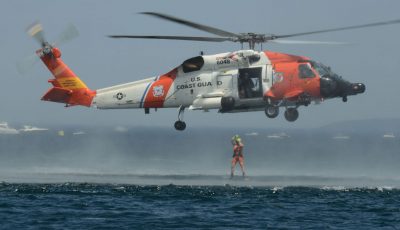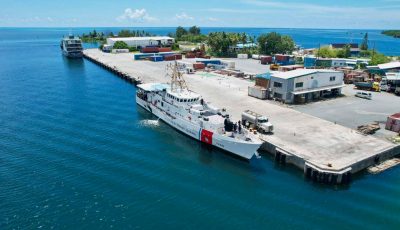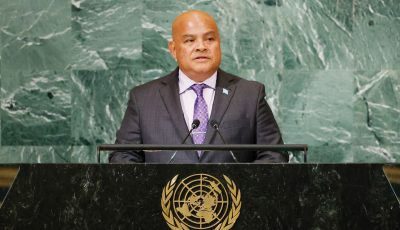Needs of outer islands is the top climate change lessons learned at Pacific meeting
KOLONIA, Yap State, FSM—The special needs of outer island communities must be considered in the planning and design of climate change adaptation projects.
That was a clear message stressed by participants at the Global Climate Change Alliance: Pacific Small Islands States project’s “lessons learned” meeting that recently concluded in Yap State in the Federated States of Micronesia.
The Secretariat of the Pacific Community, in partnership with the European Union, hosted this important reflective consultation involving 70 participants from Pacific Island states and other development partners.
Besides logistical challenges such as limited transportation, climate change adaptation projects must be sensitive to the particular customs and ways of life in outer islands, which include traditional governance structures and unique local languages.
“It is critical to communicate in the local language because when people understand what we are saying, they are able to engage and fully contribute to project activities,” the project’s Country Coordinator in Cook Islands, Teina Rongo, said.
“Combining traditional and local knowledge with scientific data is important in understanding the impacts of climate change and variability in our islands,” he added.
Participants also discussed ways to measure the impact of climate change adaption activities in outer islands.
There is a need to develop indicators that include culture, customs, market forces, sources of income, and population dynamics.
“The only income earners are teachers and local government officials who comprise less than 10 percent of the population,” said FSM Assistant Secretary, Resources and Development, Alissa Takesy, referring to FSM’s outer islands.
“It is a subsistence community so measuring against a cash economy isn’t always suitable; we need to include islanders’ traditional rights to land and marine resources.”
Recognizing the special needs of communities and of groups such as children, women, those with disabilities and the elderly was also discussed.
Participants had the opportunity to visit Fais Island in Yap State in FSM and see for themselves the project activities that provided rainwater catchment systems for household compounds and the refurbishment of a community well.
“Everyone has the right to clean water, which is a scarce commodity in the outer islands, where people, have to walk long distances to secure water for their families,” GCCA: PSIS Climate Change Coordinator in FSM, Belinda Hadley, said. “This project is really benefitting the women and children since they are ones tasked with carting water to the homes every day.”
The EU Delegation for the Pacific’s program manager for Infrastructure and Natural Resources, Martin Chong, reiterated that “the lessons learned by the nine participating countries and SPC as the EU implementing partner, and shared openly over the two days of the meeting amounts to a real positive output from the project as a whole.”
Chong added, “With the effects of climate change being the common challenge, the lessons learned and the projects implemented in each country can be replicated as demonstrated by the South-South collaboration between Tonga and Palau, specifically looking at the coastal adaptation measures in Tongatapu and their possible application in Palau where similar challenges exist.”
The project also launched nine country climate change adaptation videos at the meeting.
These videos, produced by SPC, highlight some of the stories and experiences, as well as the lessons learned from the implementation of the project.
To view the full set of videos, visit https://www.youtube.com/playlist?list=PLCq-WnF3Hdri67k5l3c-ew7AyfhQcWIXq. (SPC)



























